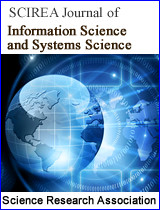Knowledge Reasoning for the Generalized Modal Syllogism □AM◇I-3
DOI: 10.54647/isss120354 26 Downloads 12475 Views
Author(s)
Abstract
This paper first proves the validity of the generalized modal syllogism □AM◇I-3 with the non-trivial generalized quantifier ‘most’ and the two trivial generalized quantifiers ‘all’ and ‘some’. And then making best of relevant facts and deductive rules, this paper deduces 20 other valid generalized modal syllogisms from the syllogism □AM◇I-3. In other words, there are reducible relationships between/among the 21 valid generalized modal syllogisms. The reasons for this conclusion are as follows: (1) any quantifier in Square{some} can define the other three quantifiers, and so can any quantifier in Square{most}. (2) necessary modality (□) and possible modality (◇) can be mutually defined. This results not only provide a common mathematical paradigm for studying the validity and reducibility of different kinds of syllogisms, but also a formal method for other types of knowledge reasoning in artificial intelligence that can be used as a reference.
Keywords
generalized modal syllogisms; generalized quantifiers; reducibility
Cite this paper
Haiping Wang, Zhaolong Yuan,
Knowledge Reasoning for the Generalized Modal Syllogism □AM◇I-3
, SCIREA Journal of Information Science and Systems Science.
Volume 8, Issue 4, August 2024 | PP. 129-138.
10.54647/isss120354
References
| [ 1 ] | Zhang, C. (2022). The Remaining 23 Valid Aristotelian Syllogisms can be Deduced only from the Syllogism IAI-3, SCIREA Journal of Computer, 7(5): 85-95. |
| [ 2 ] | Hao, Y. J. (2023). The Reductions between/among Aristotelian Syllogisms Based on the Syllogism AII-3, SCIREA Journal of Philosophy, 3(1): 12-22. |
| [ 3 ] | Li, H. (2023), Reduction between categorical syllogisms based on the syllogism EIO-2. Applied Science and Innovative Research, (7): 30-37. |
| [ 4 ] | Endrullis, and Moss, L. S. (2015). “Syllogistic Logic with ‘Most’.” In: V. de Paiva et al. (eds. ), Logic, Language, Information, and Computation, WoLLIC: 124-139. |
| [ 5 ] | Ivanov, N., & Vakarelov, D. (2012). A system of relational syllogistic incorporating full Boolean reasoning. Journal of Logic, Language and Information, (21), 433-459. |
| [ 6 ] | Hao, L. H. (2024). Knowledge Reasoning Based on the Generalized Syllogism AHH-2, SCIREA Journal of Computer, 9(1), 1-8. |
| [ 7 ] | Qiu, J. (2024). The Deductibility of the Aristotelian Modal Syllogism ◇E◻I◇O-1 from the Perspective of Knowledge Reasoning. Transactions on Engineering and Computing Sciences, 12(1), 226–232. https://doi.org/10.14738/tecs.121.16522. |
| [ 8 ] | Zhang, C. (2023). How to Deduce the Other 91 Valid Aristotelian Modal Syllogisms from the Syllogism IAI-3, Applied Science and Innovative Research, 7(1): 46-57. |
| [ 9 ] | Wei, L., and Zhang, X. J. (2023).The Reducibility of Modal Syllogisms Based on the Syllogism EI◇O-2, SCIREA Journal of Mathematics, 8(3): 87-96. |
| [ 10 ] | Xu, J. and Zhang, X. J. (2023). The Reducibility of Generalized Modal Syllogisms Based on AMI-1, SCIREA Journal of Philosophy, 3(1):1-11. |

